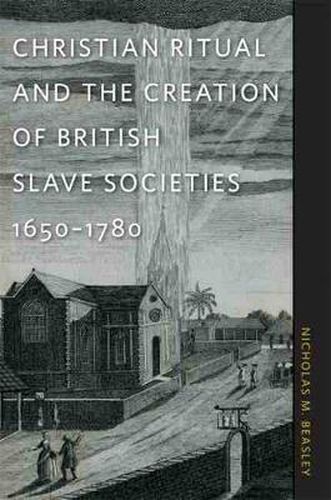Readings Newsletter
Become a Readings Member to make your shopping experience even easier.
Sign in or sign up for free!
You’re not far away from qualifying for FREE standard shipping within Australia
You’ve qualified for FREE standard shipping within Australia
The cart is loading…






This title discusses about religion and race in the British Atlantic. This study offers a new and challenging look at Christian institutions and practices in Britain’s Caribbean and southern American colonies. Focusing on the plantation societies of Barbados, Jamaica, and South Carolina, Nicholas M. Beasley finds that the tradition of liturgical worship in these places was more vibrant and more deeply rooted in European Christianity than previously thought. In addition, Beasley argues, white colonists’ attachment to religious continuity was thoroughly racialized. Church customs, sacraments, and ceremonies were a means of regulating slavery and asserting whiteness. Drawing on a mix of historical and anthropological methods, Beasley covers such topics as church architecture, pew seating customs, marriage, baptism, communion, and funerals. Colonists created an environment in sacred time and space that framed their rituals for maximum social impact, and they asserted privilege and power by privatizing some rituals and by meting out access to rituals to people of color. Throughout, Beasley is sensitive to how this culture of worship changed as each colony reacted to its own political, environmental, and demographic circumstances across time. Local factors influencing who partook in Christian rituals and how, when, and where these rituals took place could include the structure of the Anglican Church, which tended to be less hierarchical and centralized than at home in England; the level of tensions between Anglicans and Protestants; the persistence of African religious beliefs; and, colonists’ attitudes toward free persons of color and elite slaves. This book enriches an existing historiography that neglects the cultural power of liturgical Christianity in the early South and the British Caribbean and offers a new account of the translation of early modern English Christianity to early America.
$9.00 standard shipping within Australia
FREE standard shipping within Australia for orders over $100.00
Express & International shipping calculated at checkout
This title discusses about religion and race in the British Atlantic. This study offers a new and challenging look at Christian institutions and practices in Britain’s Caribbean and southern American colonies. Focusing on the plantation societies of Barbados, Jamaica, and South Carolina, Nicholas M. Beasley finds that the tradition of liturgical worship in these places was more vibrant and more deeply rooted in European Christianity than previously thought. In addition, Beasley argues, white colonists’ attachment to religious continuity was thoroughly racialized. Church customs, sacraments, and ceremonies were a means of regulating slavery and asserting whiteness. Drawing on a mix of historical and anthropological methods, Beasley covers such topics as church architecture, pew seating customs, marriage, baptism, communion, and funerals. Colonists created an environment in sacred time and space that framed their rituals for maximum social impact, and they asserted privilege and power by privatizing some rituals and by meting out access to rituals to people of color. Throughout, Beasley is sensitive to how this culture of worship changed as each colony reacted to its own political, environmental, and demographic circumstances across time. Local factors influencing who partook in Christian rituals and how, when, and where these rituals took place could include the structure of the Anglican Church, which tended to be less hierarchical and centralized than at home in England; the level of tensions between Anglicans and Protestants; the persistence of African religious beliefs; and, colonists’ attitudes toward free persons of color and elite slaves. This book enriches an existing historiography that neglects the cultural power of liturgical Christianity in the early South and the British Caribbean and offers a new account of the translation of early modern English Christianity to early America.